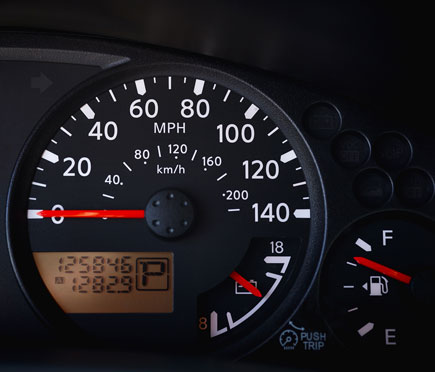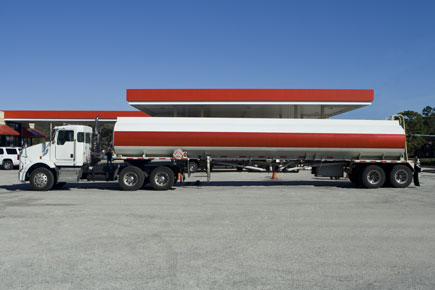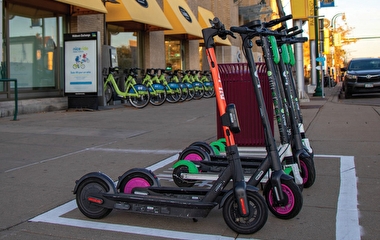Gas tax revenues are expected to decline in future years as vehicles become more fuel efficient and more electric vehicles enter the market. An alternative to the gas tax—the distance-based user fee (DBUF)—has been proposed by national studies and experts, but concerns about data privacy, equity, and administrative costs have mostly limited its use to pilot projects in the United States.
In recent studies being conducted for the Minnesota Department of Transportation (MnDOT), U of M researchers reviewed lessons from DBUF pilots in six states (including four projects in Minnesota) and explored the possibility of testing a DBUF system through collaboration with shared-mobility providers.
The research was led by a team from the Humphrey School of Public Affairs: Frank Douma (director, State and Local Policy Program), Jerry Zhao (associate professor), Camila Fonseca (research associate), and Patrick Haney (research assistant).
“This DBUF project is very promising and unique in terms of its approach,” says Ken Buckeye, MnDOT’s project manager. “It is focused on where personal travel trends are taking us in terms of technology and social-demographic patterns, and it is attempting to develop an efficient and viable model for backfilling a funding gap created by reduced fossil fuel consumption.”
Under the existing model, the gas tax is charged to wholesalers, who in turn add the cost to each gallon sold; administrative costs are relatively low. In a DBUF system, users pay a fee based on the vehicle-miles traveled rather than the gallons of gasoline purchased.
The researchers found that under most state pilots, mileage must be tracked and turned in, which raises data privacy and security issues. “Tracking mileage also has higher costs of implementation, operation, enforcement, and compliance—estimates range from 6 to 10 percent of total revenue collected,” Zhao says.
The pilots studied used a range of technology options to capture mileage data. In most cases, GPS-enabled technology was used to track where mileage occurred. “This potentially allows billing for different levels of government, but it is much more invasive privacy-wise,” Fonseca says.
fee based on mileage, and the data must be collected and reported.
Photo: Shutterstock
A key finding from the study is that privacy concerns decreased over the course of the pilots. “Participants tend to be more accepting when they understand the need for revenue generation and they do not see themselves as winners or losers after participating,” Fonseca says. “For example, participants in the Iowa study changed from a 42 percent positive impression of a mileage-based user fee to 70 percent at the conclusion of the study.”
The research team is exploring collaboration with shared-mobility providers as a way to reduce the number of fee collection points and gain potential efficiencies in collection costs. “These companies already have this technology in their vehicles and track mileage as part of their business,” Haney says. “Administering the fee becomes far easier and cheaper when there’s only a handful of providers and data can be aggregated. And an important outcome of this model is that drivers would not be directly monitored.”
A long-term, incremental transition to a DBUF system prepares the way for fee collection from shared automated vehicles, and the model could be adapted to privately owned vehicles equipped with appropriate technology. “Administrative efficiency could be more comparable to the costs of administering the motor fuel tax,” Haney says.
Researchers have completed a proof-of-concept and modeled pricing options. Efforts are continuing to engage users and other stakeholders and secure partnerships with car-sharing companies to take part in this project, Zhao says.




